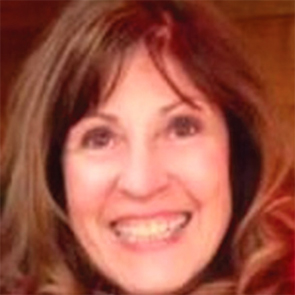A: Mentoring is the key to success, passion and educational promotion in the field. I had phenomenal mentors early on—including nurses, physicians and therapists—with tons of experience that taught me what can and should be done for these patients.
Q: What has the ACR meant to you?
A: The ACR and the ARHP have been the main mechanism to networking with colleagues who share the same passion and desire to help those with arthritis. I have made lifelong friendships with the people I initially worked with in Milwaukee, and I look forward to my annual retreat with colleagues I have met through the ARHP since 1988. I attend the ACR/ARHP Annual Meeting every year, where healthcare providers from across the U.S., Canada and the world come together to learn and share information for people with arthritis. We learn, share treatment ideas and have a lot of fun together. It still amazes me that many people still feel that there is very little you can do if you get arthritis.
Q: If you could change one thing about the field of rheumatology, what would it be?
A: Promoting the team approach with a mandatory referral to therapists so the person with arthritis makes an early connection with someone who is well versed in the musculoskeletal system. Medications and surgical interventions may be needed along the way, but taking care of your body and adapting over time to disease pathology and lifestyle activities are similar to taking your car in for service intermittently to make sure it keeps running smoothly and as efficiently as possible.
ARHP Distinguished Clinician Award
 Karen Huisinga, MN, ARNP, FNP, Rheumatology Nurse Practitioner, Seattle
Karen Huisinga, MN, ARNP, FNP, Rheumatology Nurse Practitioner, Seattle
Background: As a rheumatology nurse practitioner, Ms. Huisinga sees patients independently. Besides caring for her own patients, she contributes to the education of residents and fellows at the University of Washington. She also functions as a clinical coordinator at the Seattle division of the VA Puget Sound’s rheumatology clinic, screening consults and assigning patients to fellows and residents.
She’s also smart enough to know what she doesn’t know.
Rheumatologists in her practice “are there for consultation on complex issues,” she says. “I’m supposed to know what I don’t know and know when to consult. And I’ve certainly done that through the years. It’s advanced my knowledge and my ability to care for very complex rheumatology patients.”
It seems to have worked well. Ms. Huisinga works with residents and fellows at the University of Washington as clinical manager for the Seattle VA rheumatology clinic. She has also been an active ACR/ARHP member for decades.
Rheumatologists in [Ms. Huisinga’s] practice ‘are there for consultation on complex issues,’ she says. ‘I’m supposed to know what I don’t know & know when to consult. And I’ve certainly done that through the years. It’s advanced my knowledge & my ability to care for very complex rheumatology patients.’ —Karen Huisinga, MN, ARNP, FNP
Q: What does a clinician award mean to a front-line provider, such as yourself?



